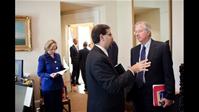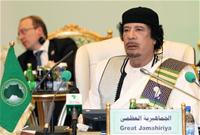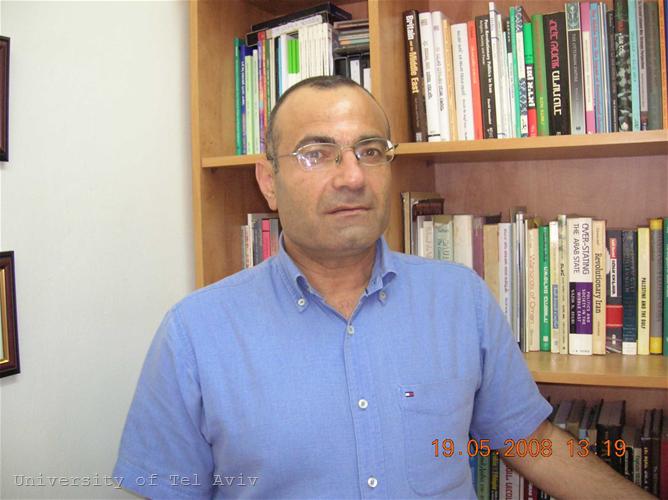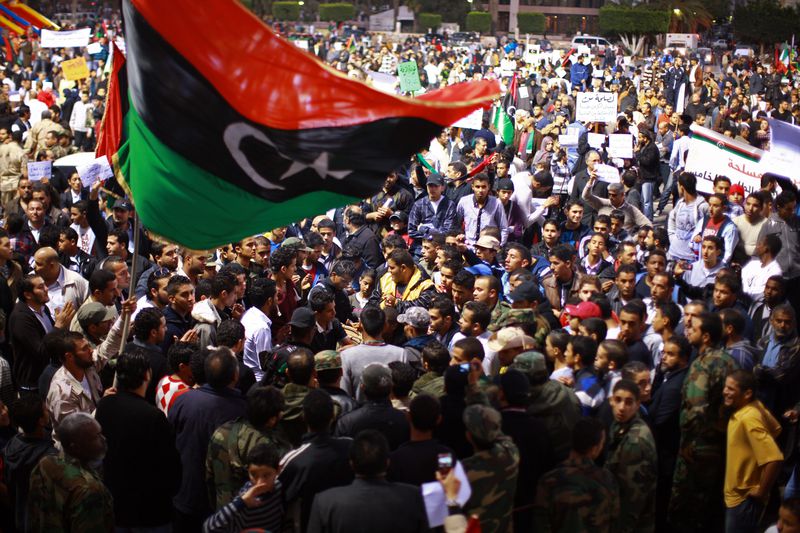Are we ready for the offline effect of online revolutions?
Ralitsa Kovacheva, February 24, 2011
 Algeria, Tunisia, Jordan, Lebanon, Yemen, Egypt, Bahrain, Libya. What triggered the “winter of discontent” in the Middle East and North Africa? What do the protesters want, how far are they ready to go, how deep can the changes be and what do they mean for the entire region and for the world? The virus of unrest is spreading so quickly that before the bewildered West could manage to perceive the situation in one country the focus of the attention moves to another. The initial assessments say that the scale of the transformation we currently witness is comparable to the crush of communism in Eastern Europe more than 20 years ago.
Algeria, Tunisia, Jordan, Lebanon, Yemen, Egypt, Bahrain, Libya. What triggered the “winter of discontent” in the Middle East and North Africa? What do the protesters want, how far are they ready to go, how deep can the changes be and what do they mean for the entire region and for the world? The virus of unrest is spreading so quickly that before the bewildered West could manage to perceive the situation in one country the focus of the attention moves to another. The initial assessments say that the scale of the transformation we currently witness is comparable to the crush of communism in Eastern Europe more than 20 years ago.
Washington anticipated the unrest in the Middle East
Not everyone was surprised by these developments as it was with the general public. The New York Times daily reported that last August US President Barack Obama has ordered to his advisers to produce a secret report on the unrests in the Arab world. The 18-page document identifies the likely flashpoints and notably Egypt, and proposes how the US administration could push for political change in the countries with autocratic rulers who are also valuable allies of the United States. An official representative, speaking on condition of anonymity, commented that by ordering the report Mr Obama has probably had very much in mind Egypt. Despite officials’ refusal to discuss in detail the other countries mentioned in the report, their comments suggest that these were Jordan, Bahrain and Yemen.
The processes in Egypt and in other countries in the region are similar: “a big youth population, threadbare education systems, stagnant economies and new social network technologies like Facebook and Twitter — that was a real prescription for trouble,” another official said to the New York Times. The conclusion of the report is that, without political changes, the countries from Bahrain to Yemen were ripe for popular revolt.
The report deals with the constant problem that the White House faces: the strive to  balance American strategic interests and the attempt to avoid broadening instability against the democratic demands of the protesters. Officials quoted by the New York Times said President Obama’s support for the crowds in the Tahrir Square in Cairo reflected his belief that not pushing for changes posed a greater risk because Arab leaders would have to resort to ever more brutal methods to suppress the dissent. It is significant that Mr Obama demanded to take the issue of political change out of the agenda of the regular meetings on diplomatic, commercial or military relations with Arab states. One official said that on those meetings the strategic interests are so dominant that it is almost impossible to discuss any reform efforts.
balance American strategic interests and the attempt to avoid broadening instability against the democratic demands of the protesters. Officials quoted by the New York Times said President Obama’s support for the crowds in the Tahrir Square in Cairo reflected his belief that not pushing for changes posed a greater risk because Arab leaders would have to resort to ever more brutal methods to suppress the dissent. It is significant that Mr Obama demanded to take the issue of political change out of the agenda of the regular meetings on diplomatic, commercial or military relations with Arab states. One official said that on those meetings the strategic interests are so dominant that it is almost impossible to discuss any reform efforts.
Interesting is also that in relation to the report Barack Obama has asked his advisers to study the revolts in Latin America, Eastern Europe and Southeastern Asia to determine which of those were successful. Such an approach is easily understood from Bulgarian point of view. If we compare, for instance, the processes in Bulgaria and Poland during the last 20 years we can see that the effects of the democratic changes are not the same. It is not a chance that 5 years after its accession to the EU Bulgaria is still under European Commission’s monitoring because of shortcomings in the fields of home affairs and judicial reform.
The report, ordered by President Obama, is not yet public and – given the pace of the events in the region – is being constantly updated. Notwithstanding the narrow goals of the US foreign policy in the Middle East the analysis of what triggered the protests in those countries is of great importance: despite the first-sight resemblance each one of them has its own specifics.
 In Tunisia and Egypt for example the presidents were taken down after long authoritarian rule. The drive of the protests in Yemen is similar. In Lebanon, the political crisis was fueled by controversy between Sunnis and Shia. In Bahrain the Shia majority protests against the Sunni royal family. In Libya, the protesters proclaimed 17 February as a Day of Rage but despite the popular discontent about unemployment, inequality and the absence of political freedom a riot of the same scale as in Egypt is not to be expected.
In Tunisia and Egypt for example the presidents were taken down after long authoritarian rule. The drive of the protests in Yemen is similar. In Lebanon, the political crisis was fueled by controversy between Sunnis and Shia. In Bahrain the Shia majority protests against the Sunni royal family. In Libya, the protesters proclaimed 17 February as a Day of Rage but despite the popular discontent about unemployment, inequality and the absence of political freedom a riot of the same scale as in Egypt is not to be expected.
The common feature of all the unrests is the demand for more civil rights and democracy. Expectedly – as it was stipulated in the quoted US report - the West supported the need for democratic reforms in order to prevent the spreading of violence. The real challenge lies, however, elsewhere - let me remind one of the statements above: “a big youth population, threadbare education systems, stagnant economies and new social network technologies like Facebook and Twitter”. As euinside already wrote, Internet and the social networks turned out to be a major organisational instrument for the protesters.
Hillary Clinton: Not Internet, the people make the revolutions
In contrast to the fatigued and weary West, in the Middle East online activity produced real offline actions – so real that people died. Obviously no one – neither the governments, nor the protesters - was prepared to deal with the effects of the online resistance when it went out into the streets. Neither of the sides had the necessary means for a civil dialogue and therefore the governments resorted to brutal force, while the protesters chose desperate resistance.
Are those societies ready to take up the responsibility which comes together with freedom? The West has always doubted this but the assault on the American journalist Lara Logan, who was brutally beaten and raped in the middle of the Tahrir Square while the crowd was rejoicing at the fall of President Mubarak, provoked even more fierce reactions. Of course, among the thousands of protesters there were various kinds of people. Besides, exactly people among those triumphing on the square saved the journalist from the raving crowd. And still, the question whether those people actually share the values they demonstrate for remains relevant.
Nowadays, the geographic limitations still allow us to feel relatively isolated and  form small communities of shared values and principles. In Internet, however, the situation is different. In a speech about freedom and security online the US State Secretary Hillary Clinton stated: “To maintain an internet that delivers the greatest possible benefits to the world, we need to have a serious conversation about the principles that will guide us, what rules exist and should not exist and why, what behaviors should be encouraged or discouraged and how.”
form small communities of shared values and principles. In Internet, however, the situation is different. In a speech about freedom and security online the US State Secretary Hillary Clinton stated: “To maintain an internet that delivers the greatest possible benefits to the world, we need to have a serious conversation about the principles that will guide us, what rules exist and should not exist and why, what behaviors should be encouraged or discouraged and how.”
This is particularly important with a view to the statistic forecasts that in the next 20 years the worldwide web will host almost 5 billion people. How many of them will be terrorists recruiting followers? How many of them will be traffickers of people? Or will sell child pornography? Or will be hackers attacking the internal networks of private companies or public institutions? We have to keep watch over freedom but equally over security because both are linked, says Ms Clinton: “Without security, liberty is fragile. Without liberty, security is oppressive.”
 Moreover, goods and ideas are spreading equally fast through Internet but there is a big chance people to get misled, deceived or involved in obscure deeds. More than ever in Internet truth is a relative concept. The line between freedom of expression and security, between the right of opinion and tolerance is thin. Internet is the opportunity for people to get as close to each other as never before and at the same time it turned out to be a powerful tool for propaganda of ideas that completely deny fundamental human values. In Internet people can unite as much for creation of benefits but also for destruction.
Moreover, goods and ideas are spreading equally fast through Internet but there is a big chance people to get misled, deceived or involved in obscure deeds. More than ever in Internet truth is a relative concept. The line between freedom of expression and security, between the right of opinion and tolerance is thin. Internet is the opportunity for people to get as close to each other as never before and at the same time it turned out to be a powerful tool for propaganda of ideas that completely deny fundamental human values. In Internet people can unite as much for creation of benefits but also for destruction.
Laws and written rules will not suffice to cope with this challenge. All of us, who are in Internet, have to share common principles and goals. We have to obey the rules of respect to the rights of the others, of truth, of legal order and lawfulness. The fundamental condition for this to happen is education. Today, every average literate can create an account in Twitter or Facebook. He, however, could easily fall prey to obscure intentions and, when it comes up to large communities of people, the range of the disaster could be even bigger. In the case of the Middle East another risk factor is in being – the Islamic fundamentalism which – once again because of Internet – is not geographically limited.
Officially, the West declares no intention to impose its values and that the societies in the Middle East are free to define their own social values and models. Unofficially, the West and especially the US consistently works for the recognition of liberal values all over the world. The EU pours billions of euro in the form of aid for supporting the reforms and development in many countries, but to this end those effort seem not to have produced tangible results.
I believe, therefore, that in parallel to the economic development and establishment of legal order the efforts of all countries need to be focused in one point: education. Only through education people in those societies would have equal chances and possibility to expand their potential. Otherwise they will remain just crowds on the streets who the rest of the world will watch on the TV while having dinner.
 | © University of Tel Aviv
| © University of Tel Aviv | © Syrian Presidency
| © Syrian Presidency | © UN
| © UN